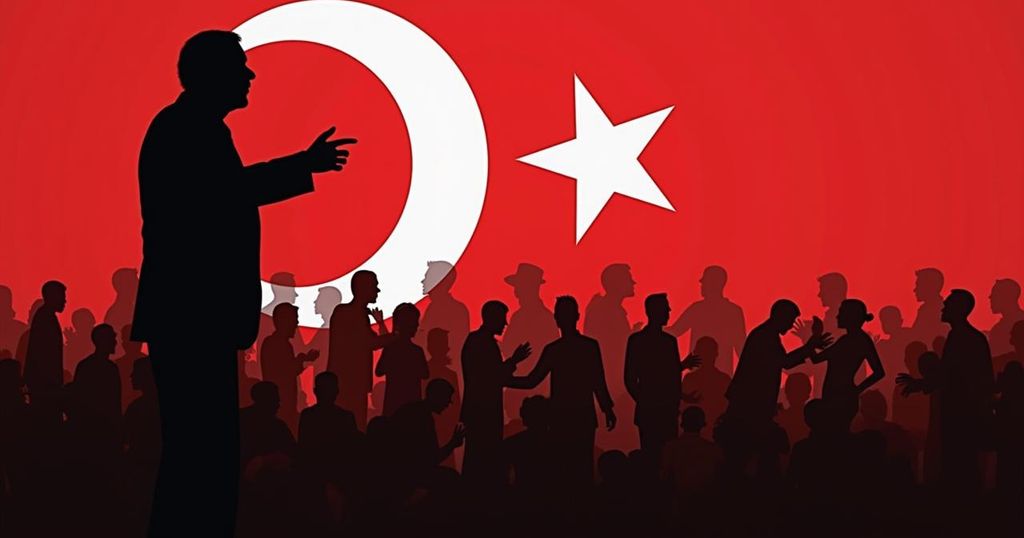Kais Saied’s Path to Reelection: A Controversial Presidential Election in Tunisia

Kais Saied is expected to secure a second presidential term in Tunisia, with exit polls indicating 89.2% support amidst historic low voter turnout of less than 28%. Serious challengers were barred from competing, and opposition figures face imprisonment. These developments raise significant concerns about the integrity of Tunisia’s electoral process and the state of democracy in the country.
Incumbent President Kais Saied appears to be on track for reelection following the recent presidential elections in Tunisia, as projections from exit polls indicate he may secure approximately 89.2% of the vote. This election has been characterized by a significant absence of credible opposition, with serious challengers barred from participation. One of Saied’s two rivals, businessman Ayachi Zammel, is currently incarcerated on charges related to his candidacy, while the other, Zouhair Maghzaoui, who previously supported Saied’s consolidation of power in 2021, was projected to receive just 3.9% of the vote. The election experienced an unprecedented low voter turnout, recorded at less than 28%. If confirmed, these results would eliminate the need for a runoff election. The current political landscape in Tunisia remains heavily influenced by Saied’s actions since his rise to power in 2019. Following a widespread dismissal of the parliament and a revision of the constitution aimed at consolidating his authority, various political actors—particularly those affiliated with opposing parties—have found themselves imprisoned or otherwise excluded from the electoral process. Prominent figures such as Rached Ghannouchi, leader of the Ennahdha party, and Abir Moussi of the Free Destourian Party, have faced severe repression under Saied’s regime. Human Rights Watch estimates that over 170 individuals have been detained for political reasons or for exercising fundamental rights. Tunisia, once viewed as a beacon of democratic progress following the Arab Spring, has experienced a regression towards autocratic governance, according to critics of Saied. This shift has occurred amid escalating economic challenges, including high unemployment rates, inflation, and shortages of essential goods. Despite pressures from international financial institutions and the European Union, Saied remains resistant to implementing unpopular economic reforms needed to stabilize the economy.
Tunisia was the birthplace of the Arab Spring, resulting in the overthrow of long-standing authoritarian rule in 2011. This movement initially set the stage for democratic reforms and greater political freedoms. However, the political landscape has dramatically changed since Kais Saied was elected president in 2019. He has since centralized power by shutting down parliament and altering the constitutional structure, prompting allegations of eroding democratic norms. With many opposition leaders facing imprisonment or exclusion from the electoral process, Tunisia’s political environment appears increasingly autocratic. The country is currently grappling with significant economic issues, including high levels of debt, inflation, and a low standard of living, further compounding the challenges faced by its citizens.
The recent presidential election in Tunisia highlights significant concerns regarding the credibility and integrity of the democratic process under President Kais Saied. With low turnout, the exclusion of serious adversaries, and ongoing political repression, Saied’s anticipated victory points to a broader trend of authoritarianism in a country that once held promise for democratic progress. In the shadow of economic turmoil, it remains to be seen how Tunisia will navigate these challenges in the upcoming years and what consequences Saied’s policies will have for the nation’s future.
Original Source: www.dw.com








